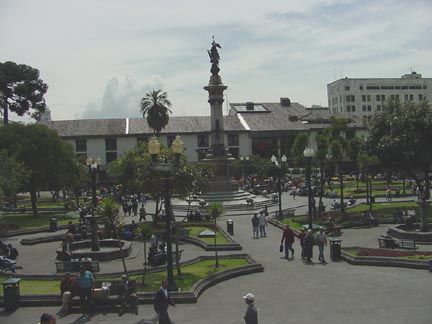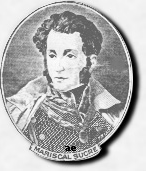

In 1811 Antonio José de Sucre joined the forces fighting for independence from Spain and rose to be the chief lieutenant of Simón Bolívar. After Colombia had been liberated from the Spanish, Bolívar sent Sucre to the Quito region where in 1822 he won the brilliant victory of Pichincha.
Accompanying Bolívar to Peru, he distinguished himself in the revolutionary victory of Junín in August., 1824. Bolívar was absent, and Sucre was the chief commander when the battle of Ayacucho was fought that December. Sucre's military genius was splendidly displayed in this victory, which assured the independence of South America.
The terms he granted to the defeated were generous, and Sucre was known for his kindness as well as his honesty and self-effacing modesty. It was against his own will that he became president of the newly created state of Bolivia, and he was not happy in the post. Despite the conciliatory spirit of his rule, an attempt was made on his life.
In 1828 he resigned and returned to Quito. A few months later he led the forces that repelled a Peruvian invasion. He was elected president of the constitutional convention that met in 1830 in an effort to prevent Bolívar's large republic of Colombia from disintegrating. Sucre's efforts to prevent Venezuela from seceding and becoming a separate state failed. In June, 1830, when he was riding back from the congress to his home in Quito, he was waylaid by unknown men in a wild mountainous region and killed. He is buried in the Cathedral across from the Plaza de la Independencia.